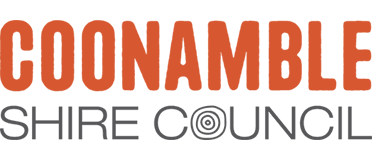Local History Room
Sharing a Wailwan Story
Sharing a Wailwan Story is an education kit that provides a rare insight into the culture of the Wailwan people.
This education kit accompanies an exhibition at Quambone that is made up of six graphic panels, two albums of 31 photos and a short video of Wailwan songs.
The focus of the exhibition is the photos of Aboriginal people taken in 1898 on Wailwan land, near the Macquarie River. They are on land near Quambone, at a camp and a bora (ceremonial) ground.
Please call in at the Coonamble Visitor Information and Exhibition Centre to hear the stories and songs that accompany this exhibition.
The Coonamble and District Archives
The Coonamble and District Archives is a purpose-built facility. This underground construction, situated beneath the Coonamble Shire Council Chambers, offers maximum security for records by being stored according to best archival practice.
Much of Coonamble's heritage has been lost to fires, floods, relocations and demolition. The purpose of the Archives is to ensure that remaining and newly created records are preserved for the benefit of future generations.
The records are available to the public, by appointment, for research and educational purposes and to promote an historical appreciation of Coonamble and District.
The collection contains a comprehensive set of the Coonamble Times newspaper from 1951 to 2007 with intermittent earlier copies available. Central to the collection is the Neville Owen Photographic Collection containing hundreds of reproduction photographs of early Coonamble life and more than 200,000 negatives of people and places connected to the area. Photographs from the collection are available for purchase.
An index to the collection is currently being developed. Only limited research can be undertaken on behalf of enquirers. Donations of materials and new committee members are always welcome.
Contact Council on (02) 6827 1900 for further information.
Coonamble Family History Society
Coonamble Family History Society is an organisation of volunteers who have a passion for our local history.
Membership is open to all by paying an annual (July-June) subscription of $20 (plus a $5 Joining Fee for new members). Membership allows access to all society records. Communication is mainly through email (coonamblefamilyhistorysociety@gmail.com) and the Society's Facebook page.
History of the Coonamble Jockey Club
The first race meetings in the Coonamble district were held in the 1860s on Patrick McMahon’s Geanmoney run, which extended from the present aerodrome area to Combara, on the western side of the Castlereagh River. These race meetings were informal affairs organised among friends who had travelled to town on horse-back. Later the group started a Jockey Club and raced at a track which encircled the old cemetery which was situated on the eastern end of Warrena Street.
Within 10 years there were 40 horses stabled in Coonamble for local race meetings held on surrounding properties. In 1878 the site of the present racecourse was approved and a grandstand built. The very first recorded Gold Cup was held in 1910 followed by a second one in 1911. There are no records of further gold cups until 1959.
The meetings from 1959 were run as an important event in the Coonamble Wool Festival. The meetings of the 1960s and 1970s were big affairs, attracting Sydney horses and jockeys for the Monday meet. Since 1959, the Gold Cup meetings have been a yearly event, except for two rain and one Equine Influenza virus interruptions.
The 1969 Coonamble Gold Cup race meeting was abandoned due to wet weather. However, the local community and the many visitors (including Sydney and Provincial owners, trainers and jockeys) were not completely disappointed. The Coonamble Jockey Club president, Mr Edward Kennedy (‘Kensington’) had nominated his impressive horse, ‘Transit’, in the cup, and Warwick Farm trainer John Poletti was quite confident his horse, ‘Opening Duel’, could win the prestigious event.
After much banter about whose horse would have won the race, they decided to settle this matter by challenging one another to a foot race down the main street of Coonamble. John Poletti won the race, however, legend has it that Kennedy suffered a fall, thus making it an easy win for his opponent.
The 2007 Gold Cup was not held because the racing industry was in lockdown because of the Equine Influenza outbreak.
The 2008 Gold Cup was won by Miss Alberta and, in 2009, the Muswellbrook-trained Newton’s Rings won the 2009 Gold Cup with Hari Singh on board.

